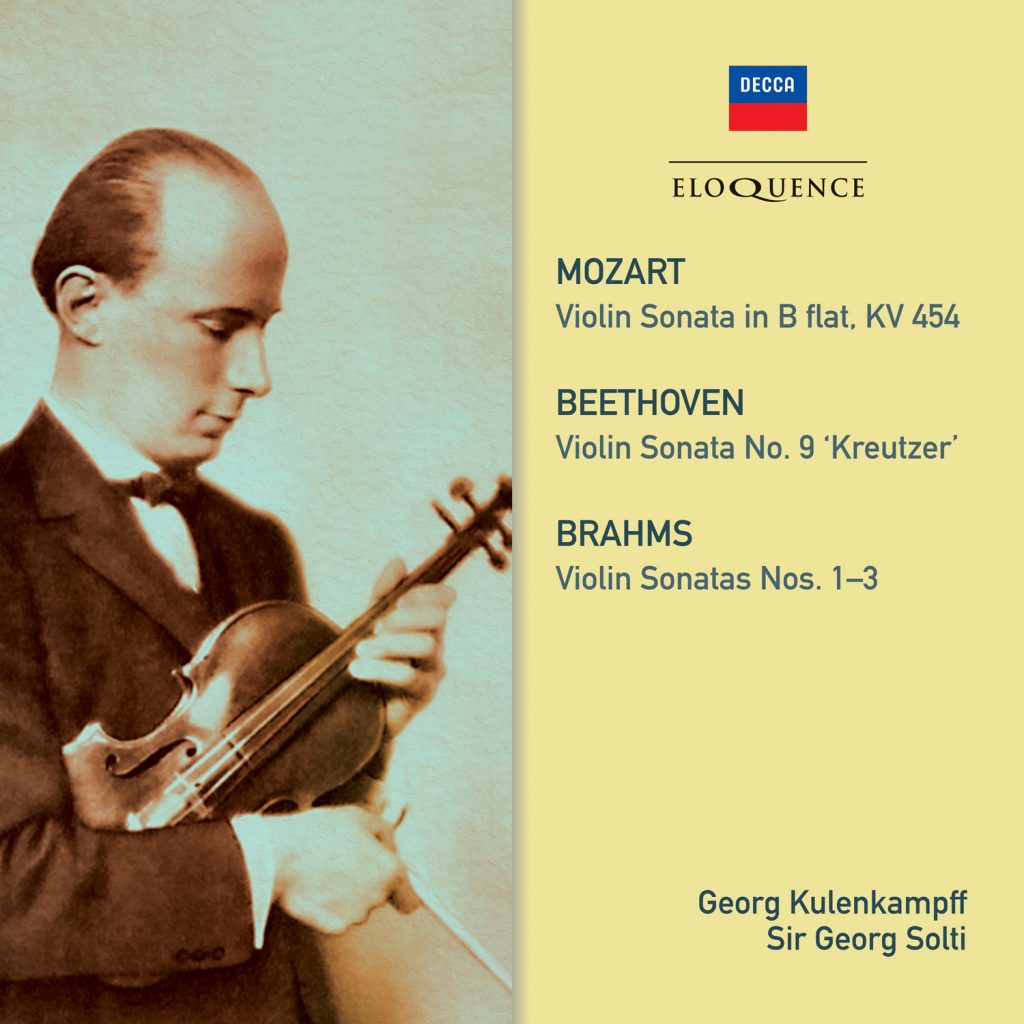Georg Solti’s first recordings were as a pianist – those with the great German violinist, Georg Kulenkampff, here collected in their entirety. The two artists recorded Brahms’s G major sonata in February 1947 and Beethoven’s ’Kreutzer’ Sonata in June 1947. They completed the Brahms sonatas in July 1948. Sadly, this would be their only collaboration. Kulenkampff died on 4th October, 1948 after a brief illness. He was only 50.
In these recordings with Kulenkampff, Solti’s exceptional abilities as a listener, his accomplishments as a repetiteur and his instinct as a soloist combine in perfect harmony. He is discreet but never excessively deferential in accompanimental passages and bold but never obtrusive when the piano assumes a soloistic or quasi-orchestral prominence, especially in the Brahms sonatas and Beethoven’s ‘Kreutzer’. These recordings were made in the days when it was still standard practice to favour the violin acoustically, perpetuating the invidious idea of the pianist as mere ‘accompanist’. Yet through the very quality of his tone and impeccable judgement of his rhythm, Solti redresses the balance despite being somewhat ‘recessed’ by the recording team.
CD 1
WOLFGANG AMADEUS MOZART
Sonata for Piano & Violin in B flat major, KV 454
LUDWIG VAN BEETHOVEN
Sonata for Violin & Piano No. 9 in A major, Op. 47 ‘Kreutzer’
CD 2
JOHANNES BRAHMS
Sonata for Violin & Piano No. 1 in G major, Op. 78
Sonata for Violin & Piano No. 2 in A major, Op. 100
Sonata for Violin & Piano No. 3 in D minor, Op. 108
Georg Kulenkampff, violin
Georg Solti, piano
Recording Producer: Victor Olof
Balance Engineers: Kenneth Wilkinson (Mozart, Brahms Op. 100, Op. 108); Arthur Haddy (Beethoven); Rolf Liebermann (Brahms Op. 78)
Recording Location: Zurich Radio Studio, Zurich, Switzerland, 28 January 1947 (Brahms Op. 78); 23 June 1947 (Beethoven); July 1948 (Mozart, Brahms Op. 100, Op. 108)
Remastering Engineer: Chris Bernauer (CD1); Audio Archiving Company (CD2)
‘This recording reveals what a magnificent technique [Solti] possessed … his playing is pretty good, and often remarkable for his very sparing use of the pedal … [Kulenkampff’s playing] of the slow movement is exquisitely expressive.’ (Beethoven) Gramophone, February 1964
‘The great virtues of Kulenkampff were his sweet lyrical tone and his exquisite phrasing … this is glorious playing [of the Brahms Op. 78] by both artists. The last page of the slow movement is really tremendous, and touched with inspiration’ (Brahms) Gramophone, May 1965

